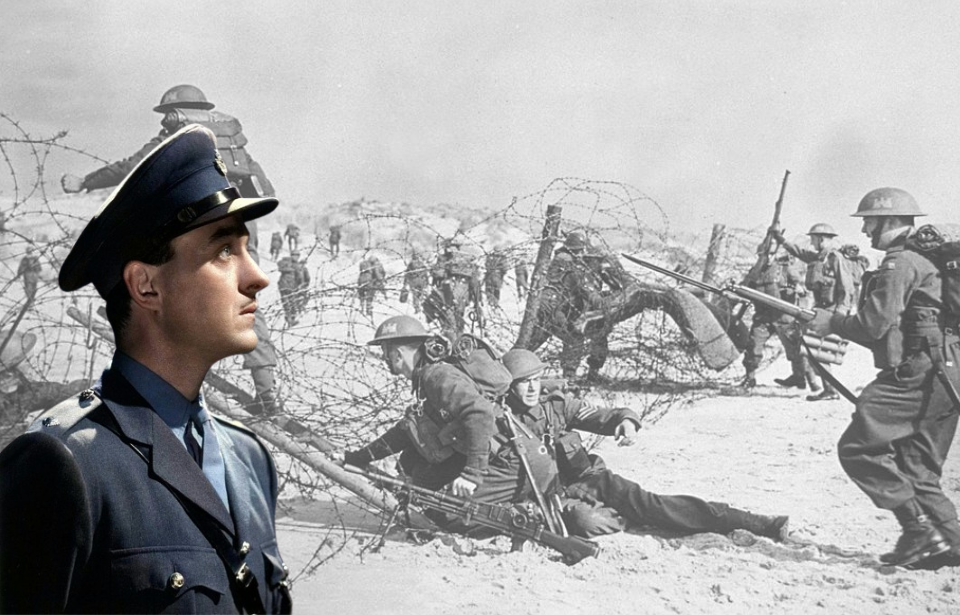A famous Hollywood star of the 1940s, through to the ’80s, David Niven featured in numerous popular films, even taking on the role of James Bond. An actor by trade, when the Second World War broke out, he was determined to do his bit. Others, however, had a very different idea of what they wanted his role in the conflict to be, meaning he had to fight to be allowed to serve.
David Niven’s early life
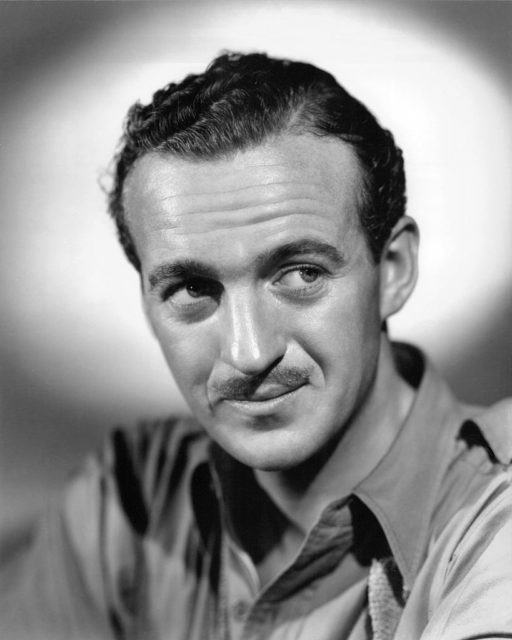
David Niven was born and raised in London, England. When he was old enough, he earned a place at the Royal Military College, Sandhurst, where he made the decision to enlist in the British Army. He requested a place either with the Black Watch or Argyll and Sutherland Highlanders, but was commissioned a second lieutenant in the Highland Light Infantry, despite explicitly asking to be assigned to any other unit.
For two years, Niven was stationed in Malta, alongside future British 1st Airborne Division commander, Roy Urquhart. He quickly grew bored of his service and resigned in 1933 as a lieutenant.
This decision was also likely spurred on by his newfound interest in acting, having landed a role as a film extra. Niven moved away from the United Kingdom and took up residence in New York City, after which he moved to Hollywood. He hired an agent, who helped him land many smaller roles, until 1939, when he was cast as Edgar Linton in Wuthering Heights.
World War II breaks out
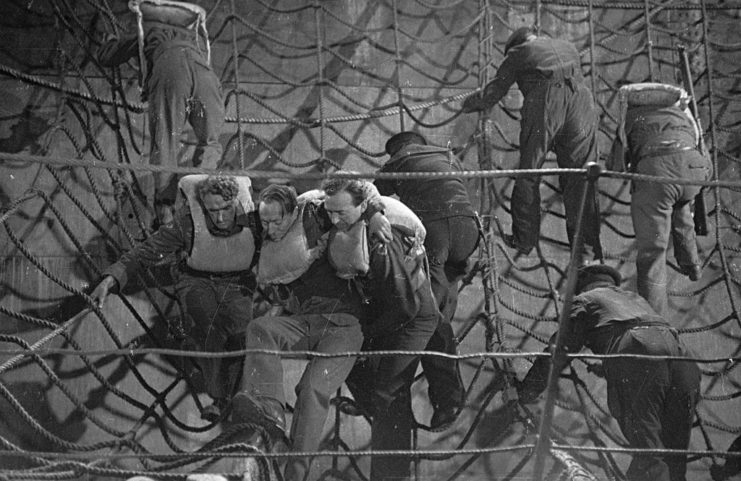
When the Second World War broke out in September 1939, David Niven was contracted to the crime-comedy Raffles and slated to complete three more weeks of filming. He was informed that Britain had declared war against Germany while sleeping off a hangover alongside friend and fellow Brit, Robert Coote.
They’d moored their boat at California’s Balboa Yacht Club for the night, only to be awoken by a sailor passing by at 6:00 AM. The man banged on their boat to ask if they were English. When Niven and Coote responded that they were, he replied, “Then good luck to ya – you just declared war on Germany.”
Determined to fight
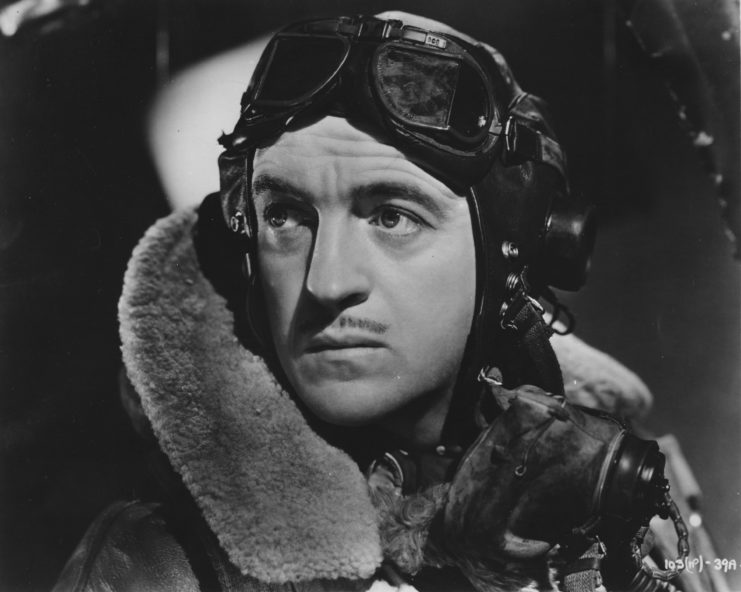
Both David Niven and Robert Cooke, along with their close friend, Laurence Olivier, were determined to enlist. One complication, however, was that the British Consulate was advising those in other countries to remain where they were, unless they were in the Reserves.
Another complication was Niven’s studio contract. He went to talk with executive Samuel Goldwyn, who was sympathetic to his plight, but wanted him to stay and complete Raffles. Unsatisfied with Goldwyn’s answer, the actor enlisted the help of his brother.
Niven told him to send a cable that read, “Report regimental deport immediately Adjutant,” after which he went back to Goldwyn, knowing his early service with the British Army was well-known. The studio executive was convinced Niven was in the Reserves and had been called back for service, not knowing he’d resigned from his post in 1933.
Niven was, in fact, the only British actor in Hollywood to return to his home country to fight in the war. He made his way back to England and joined the Rifle Brigade (Prince Consort’s Own). Recommissioned into service as a lieutenant, he was assigned to a motor training brigade.
David Niven’s wartime service
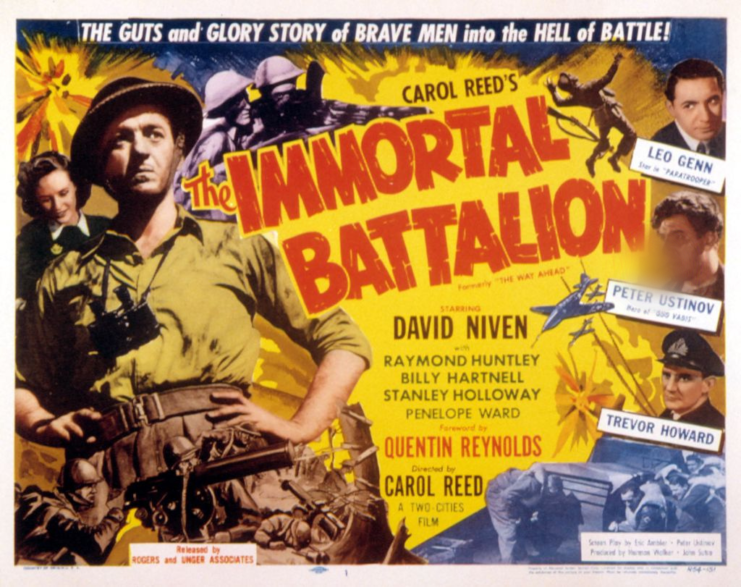
David Niven carried out many roles during World War II. He acted in films by the Army Film and Photographic Unit (AFPU), the most famous being The First of the Few (1942) and The Way Ahead (1944). He also aided in Operation Copperhead, “casting” actor M.E. Clifton James to impersonate Gen. Bernard Montgomery, in an effort to mislead German intelligence. This, along with his time in the Rifle Brigade (Prince Consort’s Own), were only a small part of his wartime service.
It wasn’t long after being commissioned that Niven was drafted into the Commandos and given command of “A” Squadron, GHQ Liaison Regiment. Better known as “Phantom,” they were anything but a liaison group. The men served all over Europe, and most notably saw action on D-Day and during Operation Market Garden.
During the former, some of the Commandos landed alongside the first wave of airborne troops; their mission was to report intelligence on the location of Allied forces the day following the initial landings. Niven and his men then traveled with the US 1st Infantry Division as they moved toward the Rhine.
On top of this, he also played a large role in the creation of the Supreme Headquarters Allied Expeditionary Force’s (SHAEF) efforts to entertain troops via radio. In 1944, he worked with the BBC to expand these efforts, and even worked alongside Glenn Miller, who disappeared while flying over the English Channel in December 1944.
For his service, Niven was awarded the American Legion of Merit and was promoted to the rank of lieutenant colonel.
David Niven’s return to Hollywood
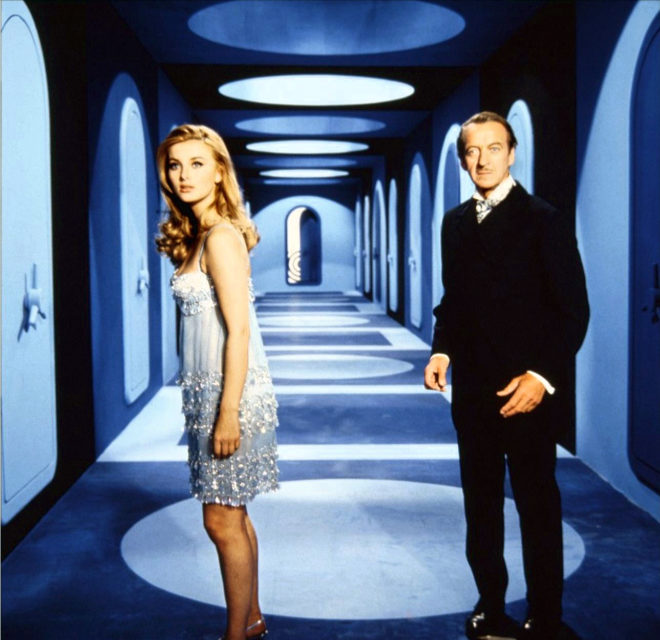
When the war ended, David Niven returned to his burgeoning Hollywood career, going on to star in many of the films that made him a household name. He acted alongside Cary Grant in The Bishop’s Wife (1947) and co-starred with Shirley Temple in A Kiss for Corliss (1947).
Following a slight dip in his career, he returned to the big screen with The Moon Is Blue (1953), for which he won a Golden Globe. This was followed by his role as Phileas Fogg in Around the World in 80 Days (1956) and Separate Tables (1958), the latter of which won him the Academy Award for Best Actor.
Other popular roles included James Bond in 1967’s Casino Royale, Sir Charles Lytton in The Pink Panther (1963) and Jonathan Kingsley in The Impossible Years (1968).
More from us: James Garner’s Nose Saved His Life While Serving In Korea
Niven largely remained quiet about his wartime experience, only once saying:
“I will, however, tell you just one thing about the war, my first story and my last. I was asked by some American friends to search out the grave of their son near Bastogne. I found it where they told me I would, but it was among 27,000 others, and I told myself that here, Niven, were 27,000 reasons why you should keep your mouth shut after the war.”
